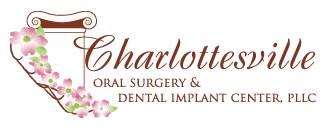27 Apr Bruxism and TMJ Disorder: What is the difference?
Bruxism and other TMJ disorders are common dental conditions experienced by millions of patients each year. Some patients experience these conditions periodic ally in response to stress or fatigue. For others, the conditions are chronic and ongoing, to the point of pain or damage to the teeth, bones, and joints.
An oral surgeon is a dental specialist trained in the diagnosis and treatment of bruxism and TMJ disorders. Bruxism and TMJ disorder are actually two different conditions which require different treatments. Therefore, it is important to determine which condition affects you in order to select the appropriate treatment.
Bruxism is defined as the clenching and grinding of the teeth. Clenching and grinding may take place during the day or while sleeping and can lead to a number of unpleasant side-effects. To complicate diagnosis, it can be difficult to determine if you suffer from bruxism unless you begin to notice the side-effects. Bruxism is typically a subconscious or involuntary habit, making it even more difficult to detect and control.
To protect your teeth and jaw bone, your oral surgeon may recommend a protective mouthguard.
TMJ disorder is a term used to describe a wide range of dental conditions that impact the jaw joint. This may include popping and clicking in the joint, pain, headaches, neckaches, and bruxism. Diagnosing TMJ disorder can be difficult without the help of your oral surgeon.
To prevent pain and damage to the jaw joint and teeth, your oral surgeon may recommend a specially designed mouthguard. In advanced cases, oral surgery may be necessary to correct the function of the joint.
The damage from both conditions can be extensive and irreversible, making preventative or corrective treatment a top priority. Chipped teeth, broken fillings, bone loss, deterioration of the jaw joint, and pain can affect your quality of life and threaten your overall health.
If you suspect that you are suffering from either of these conditions, contact Charlottesville Oral Surgery & Dental Implant Center at 434-295-0911 for the proper diagnosis and treatment.
